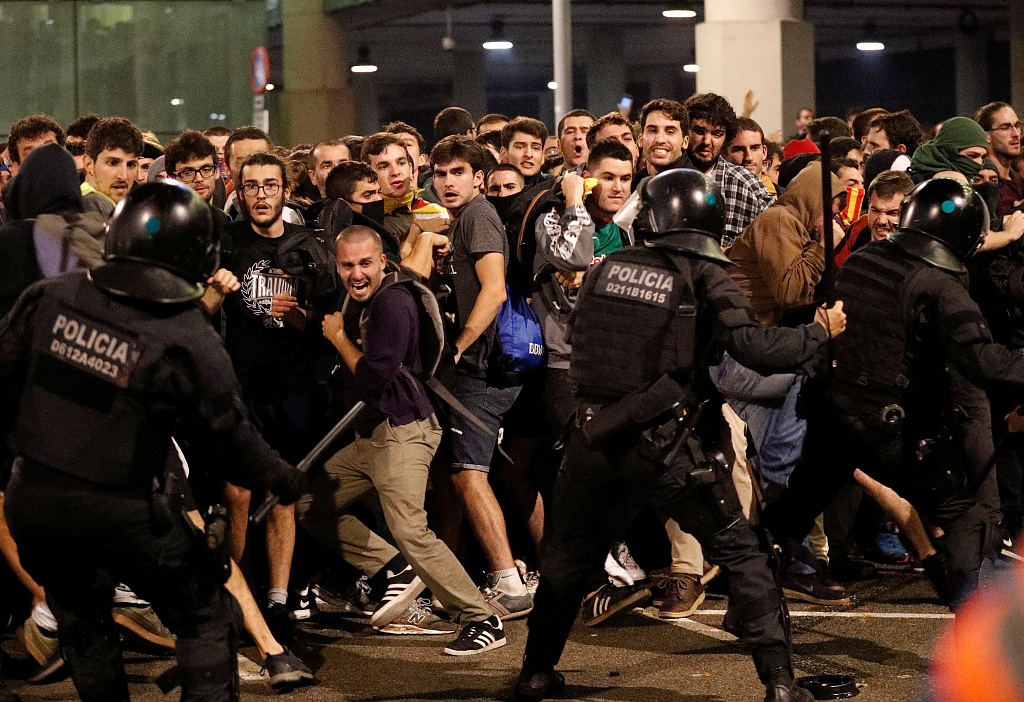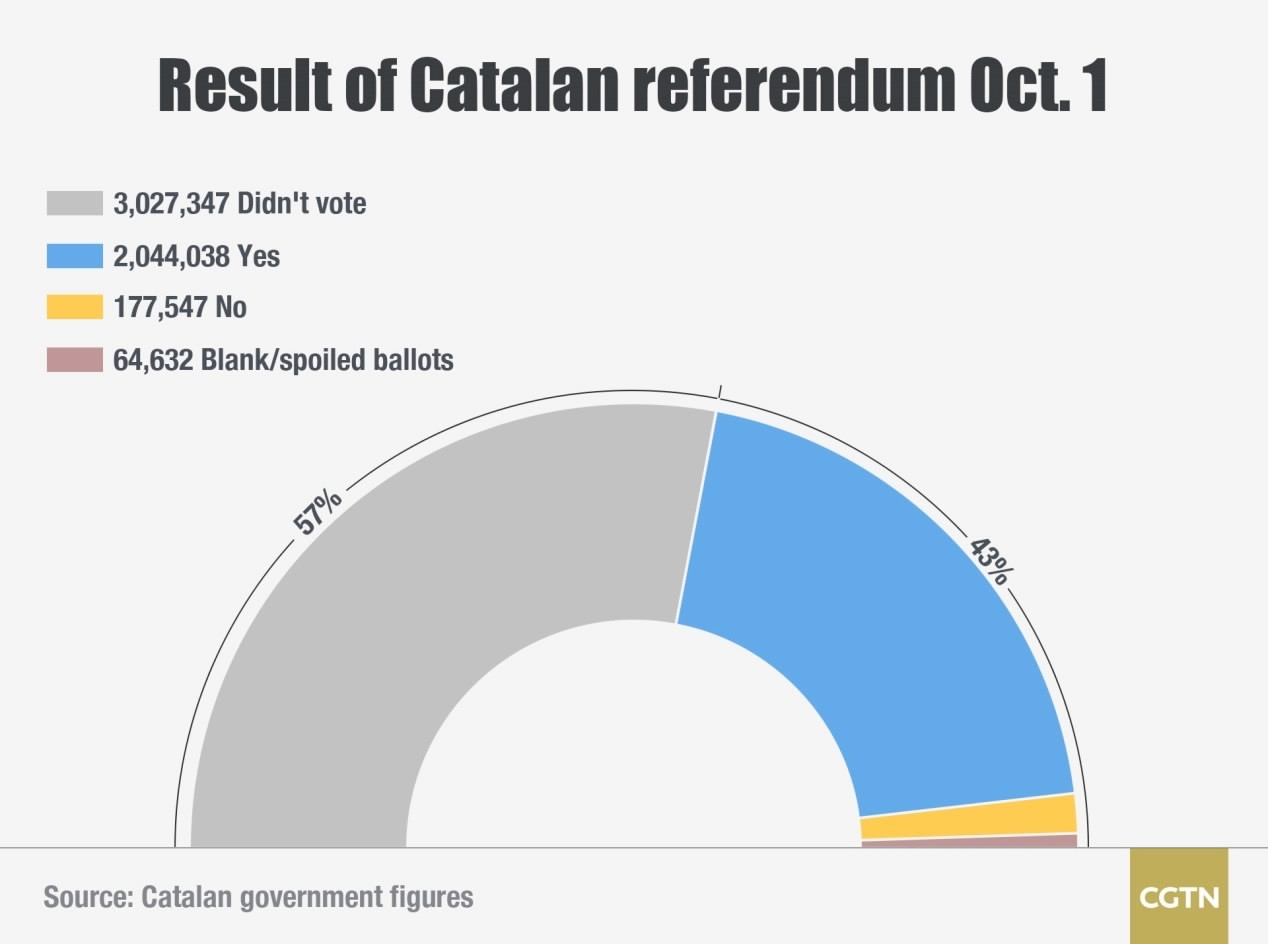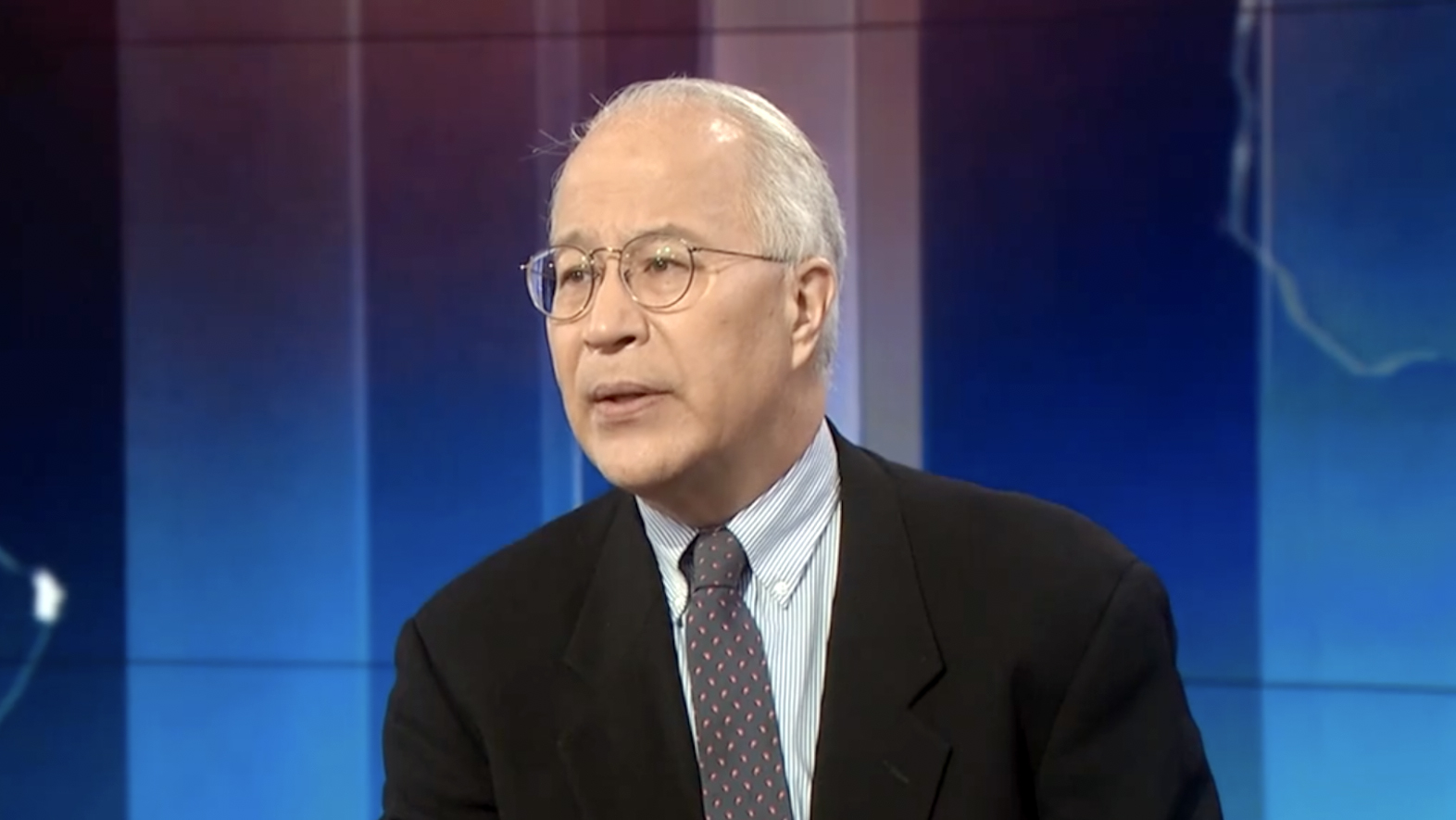It's the fifth consecutive day of protests in the Catalan capital over a Spanish court's heavy sentences handed down to nine Catalan politicians and activists to jail terms of between nine and 13 years for that independence bid, while three others received fined. The 12 were at the forefront of a secession attempt in 2017 that led to the biggest political crisis in Spain's modern history.
Violent clashes erupt as Spanish Supreme Court jails Catalonia leaders
Authorities said on Saturday that nearly 200 people were hurt in another violent clash in Catalonia, after radical separatists hurled rocks and fireworks at police who responded with teargas and rubber bullets. In Barcelona, 150 more were injured.

Protesters clash with police officers as they demonstrate at the airport, after a verdict in a trial over a banned independence referendum, in Barcelona, Spain, October 14, 2019. /VCG Photo
Protesters clash with police officers as they demonstrate at the airport, after a verdict in a trial over a banned independence referendum, in Barcelona, Spain, October 14, 2019. /VCG Photo
Located in northeast Spain, semi-autonomous Catalonia has its distinct history dating back 1,000 years. The prosperous industrial region has its own language, parliament, flag and anthem, and is fiercely protected by its 7.5 million residents.
Its autonomy was restored after Francisco Franco's rule from 1939 to 1975. But it was suspended for roughly seven months by Madrid after a failed separation bid in 2017. Catalan nationalists have long complained that too much of their money is being sent to the poorer parts of Spain via taxes, which are controlled by Madrid.
Yet polls show Catalans remain roughly divided over the independence issue.
Timeline: How did they get here?
June 9, 2017: Then Catalan President Carles Puigdemont announces plans for a "binding" referendum on independence.
October 1, 2017: Catalonia holds an independence referendum, with a 43 percent turnout. Riot police clash with voters.
October 2, 2017: Catalan government says 90 percent voted for "yes" in the independence bid.

October 16, 2017: Two pro-independence activists are jailed for sedition.
October 19, 2017: Puigdemont refuses to drop his threat to declare a breakaway state.
October 23, 2017: Catalan separatists threaten "mass civil disobedience."
October 27, 2017: The Catalan parliament declares independence in a disputed vote. Spain's senate approves measures to dismiss the Catalan government.
October 31, 2017: Puigdemont and several members of his deposed Cabinet flee to Belgium.
December 21, 2017: The Spanish government sacked Catalan leaders, dissolved parliament and called for a snap regional election.
June 2018: Catalan nationalists regained control from Madrid's direct rule after Puigdemont was sworn in.
February 12, 2019: The trial of the 12 separatist leaders in the 2017 bid begins at the Supreme Court in Madrid.
October 14, 2019: The Supreme Court finds all 12 guilty and sends nine to prison, while fining three others. Protests immediately erupted across Catalonia demanding the release of separatist leaders, where violent clashes broke out with police.
October 17, 2019: Catalan President Quim Torra vows to push for a new independence referendum, amid protesters throwing petrol bombs and setting barricades on fire.
October 18, 2019: Separatists call for a general strike and another mass rally. Violent escalated in Barcelona, as radical Catalan separatists hurled rocks and fireworks at the police, who responded with teargas and rubber bullets, turning the city center into a chaotic battleground.
'Not enough media coverage from the West'
Some have argued that the media has not done enough reporting. Scottish National Party (SNP) MP Gavin Newland wrote on Twitter: why "absolutely nothing on the BBC news app"?
Many have compared the Catalonia crisis to the Hong Kong unrest, which has been going on for over four months now, questioning the reasons behind the different responses coming from the West.
International relations researcher Sun Keqin told Chinese media outlet Global Times that Western media and governments were apparently embarrassed by the unrest in Catalonia and tried to play down the incident, which is reflected in the lack of attention in the media.
Similar protests, different reporting tactics. George Galloway, a former British MP, could not figure out why supporters of jailed Catalan leaders were framed as creating chaos in the Western media, but the same tactics were called "a pro-democracy protest" in Hong Kong.
One man's "terrorist" is, of course, another man's "freedom fighter," but now it has become ridiculous, Galloway wrote in an article on the Russia Today website on Tuesday.
00:59

"It's pure hypocrisy," current affairs commentator Einar Tangen said. "I am not saying they (Western media) should be supporting it. But you can't say one is right and the other one is wrong. They involved the same thing."